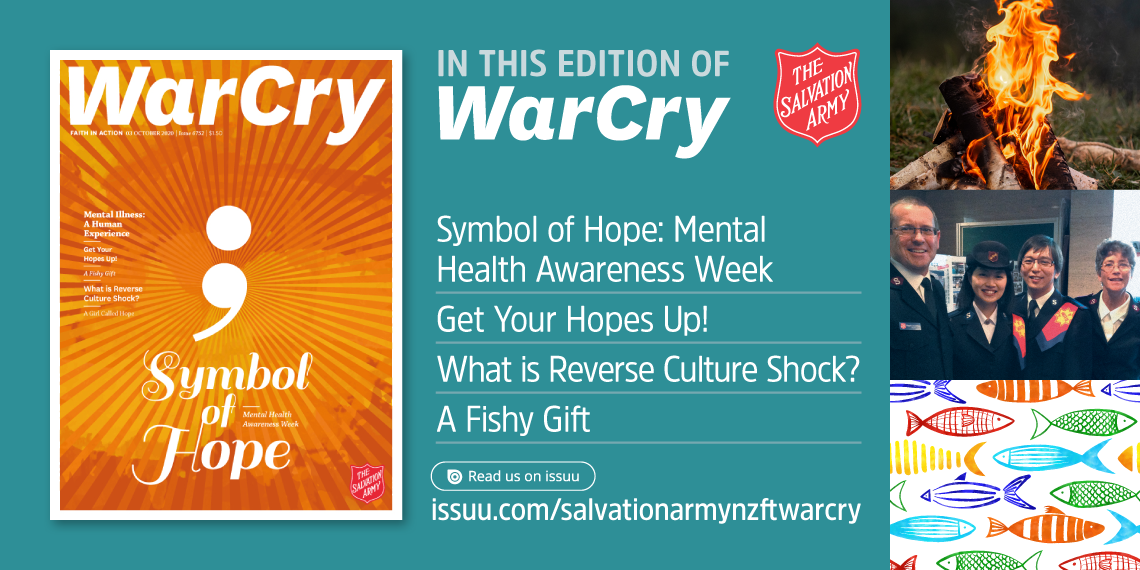Pause for hope

Read this edition online.
Our front cover features a semi colon, a writing tool that indicates the author has not completed the sentence. But for people with mental health issues, the semi colon is the symbol of hope that a mental health episode is not the end of their story, but a pause.
Project Semicolon was founded by a young woman in 2013, as a tribute to her father who had died by suicide. Sadly, as a young woman, she also committed suicide. The aim of the movement is ‘presenting hope and love to those who are struggling with depression, suicide, addiction and self-injury’. Their symbol, the semi colon, is worn on tee shirts, earrings, necklaces and as tattoos.
I recently listened to an interview with a youth mental health worker, who was commenting on the rise of mental health issues for young New Zealanders. She said that our young people no longer have the hope of a good future. The constant messages to this generation are hope-stealing messages of pandemic, economic recession and depression, climate change, fires, water crisis—the list goes on. They are also fed a subliminal message that life does not matter. No wonder our young people feel hopeless.
One of the aims of War Cry is to bring hope. Each week we aim to include hope-filled messages. Our feature this week is about Captains Jules and Mat Badger and their journey through Jules’s mental health crisis. We also feature ‘A Girl Called Hope’, an organisation that is bringing support and hope to women who feel they are in hopeless situations. So, if you know someone struggling with hopelessness or mental health, please pass on a copy of the hope-filled War Cry.
Vivienne Hill
Editor
You have enemies? Good. That means you’ve stood up for something, sometime in your life.
Winston Churchill
Bible Verse
Proverbs 13:12
Hope deferred makes the heart sick, but a longing fulfilled is a tree of life.
Ngā Whakatauki
He manako tāringa roa, he patu ngākau: ka tae te koronga, ko te rākau ia o te ora.
